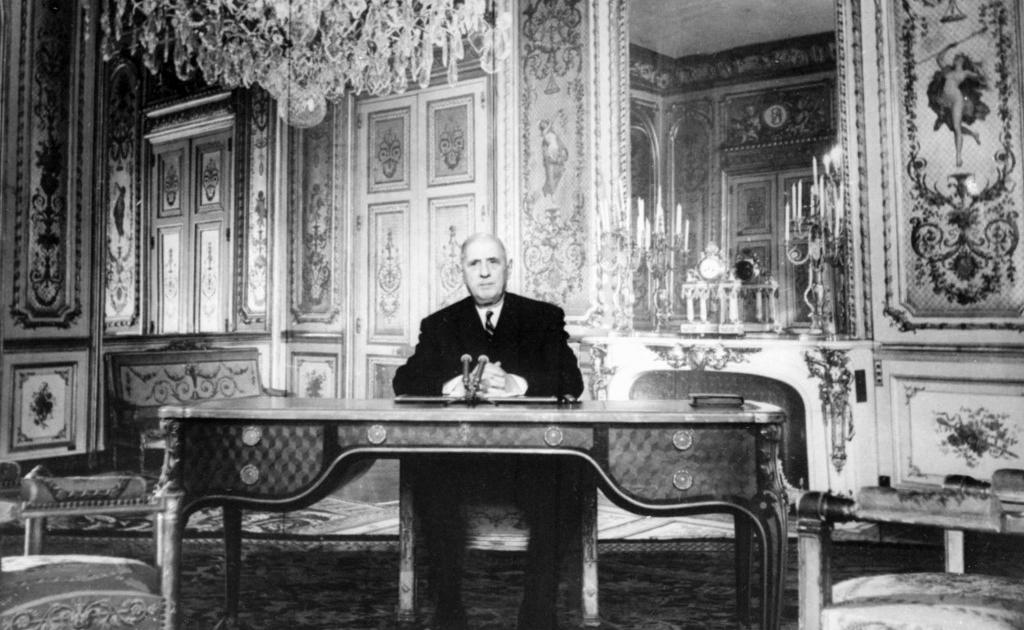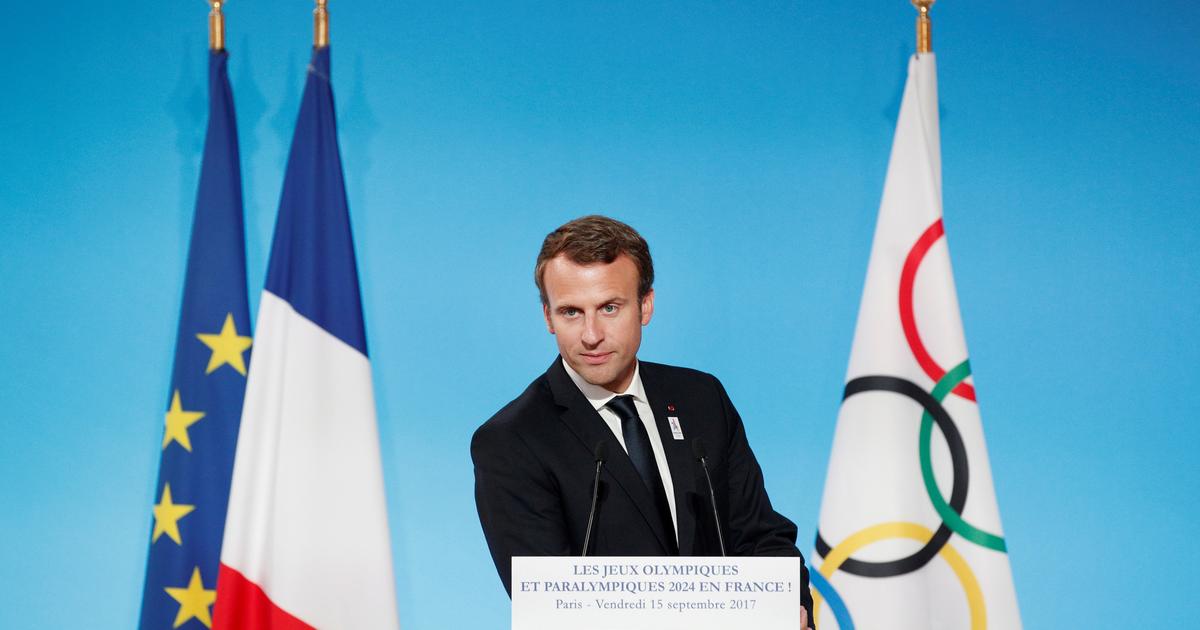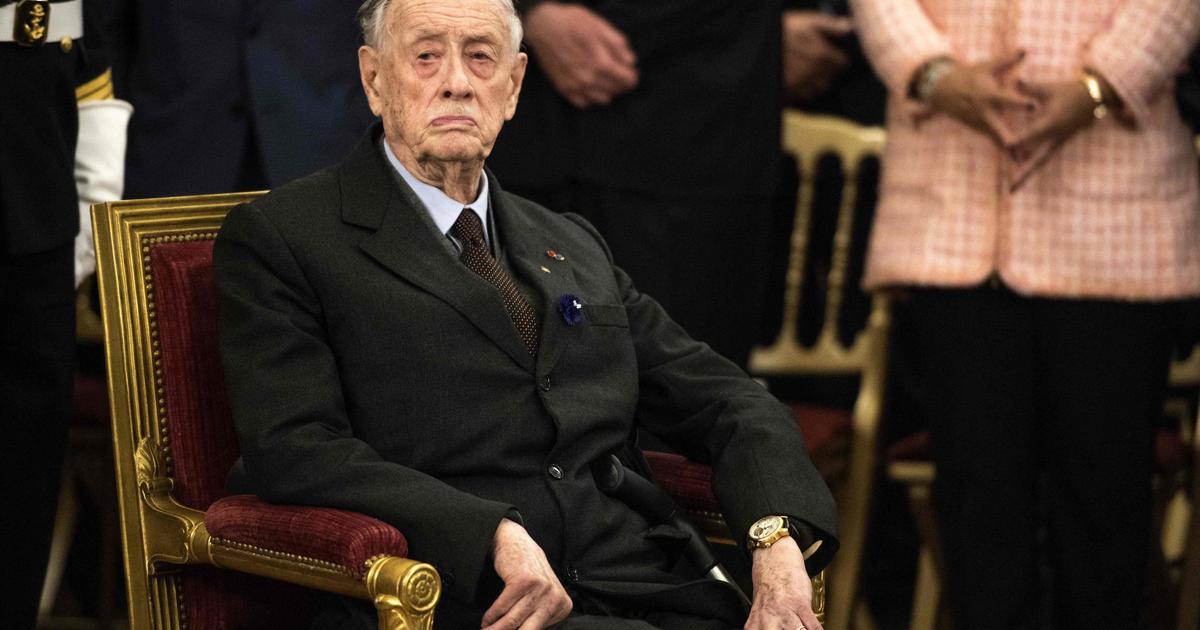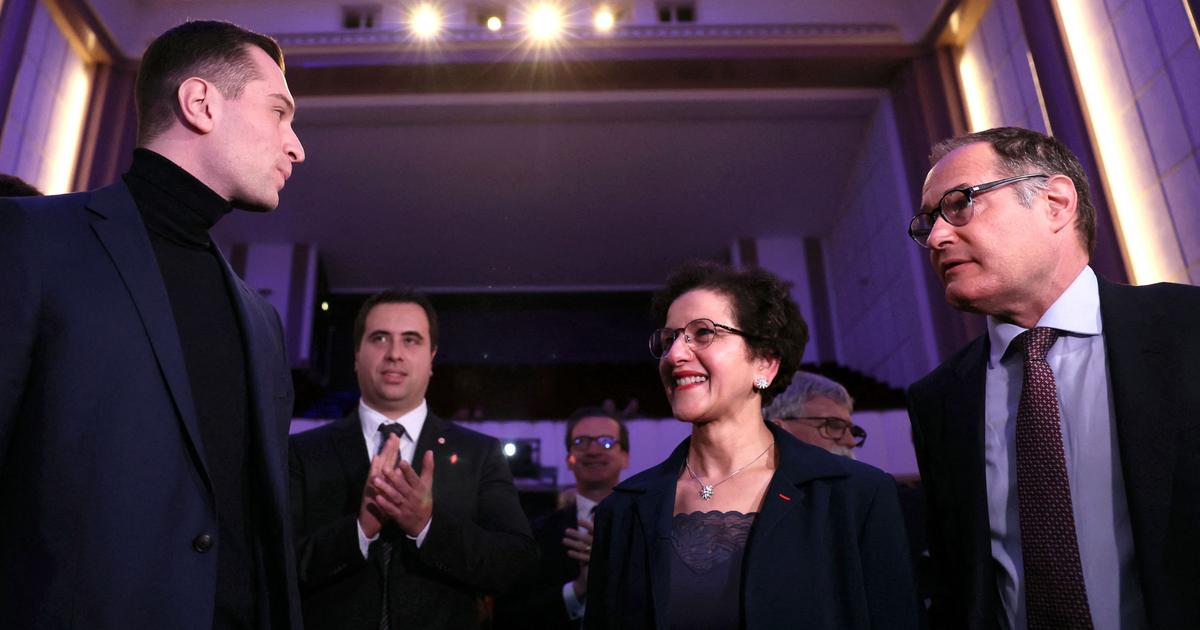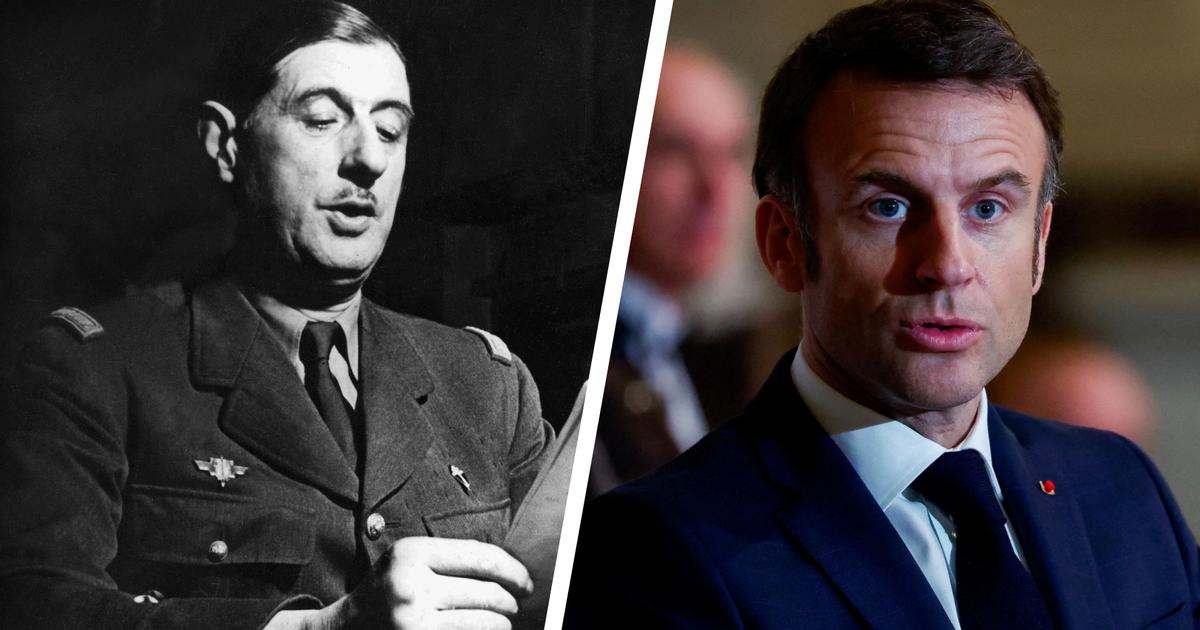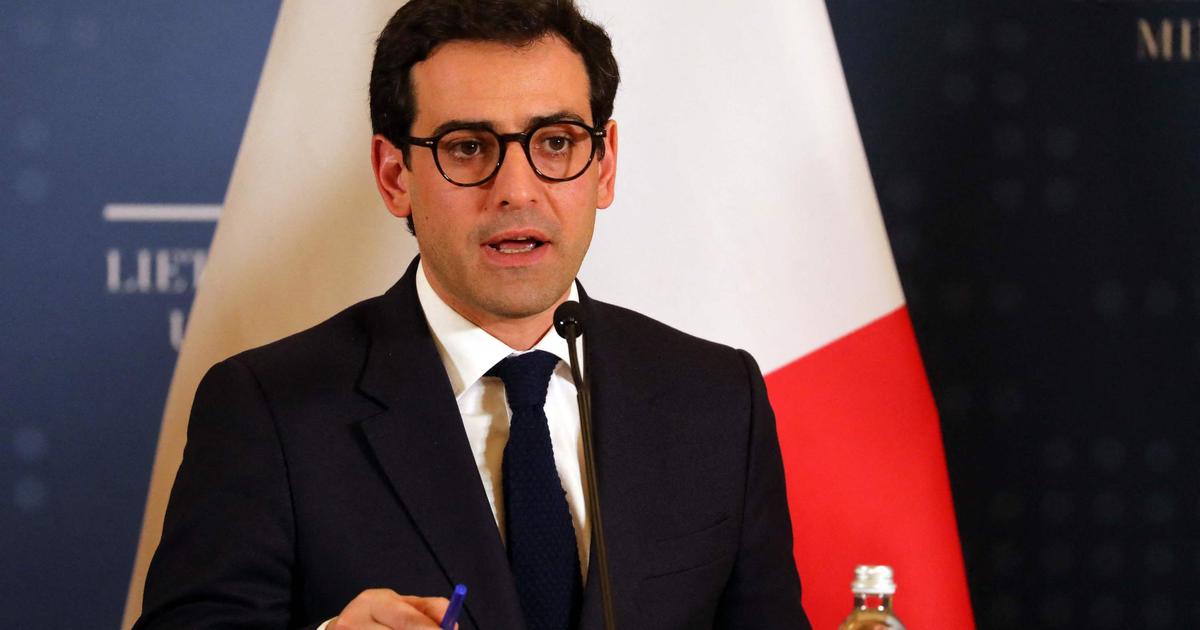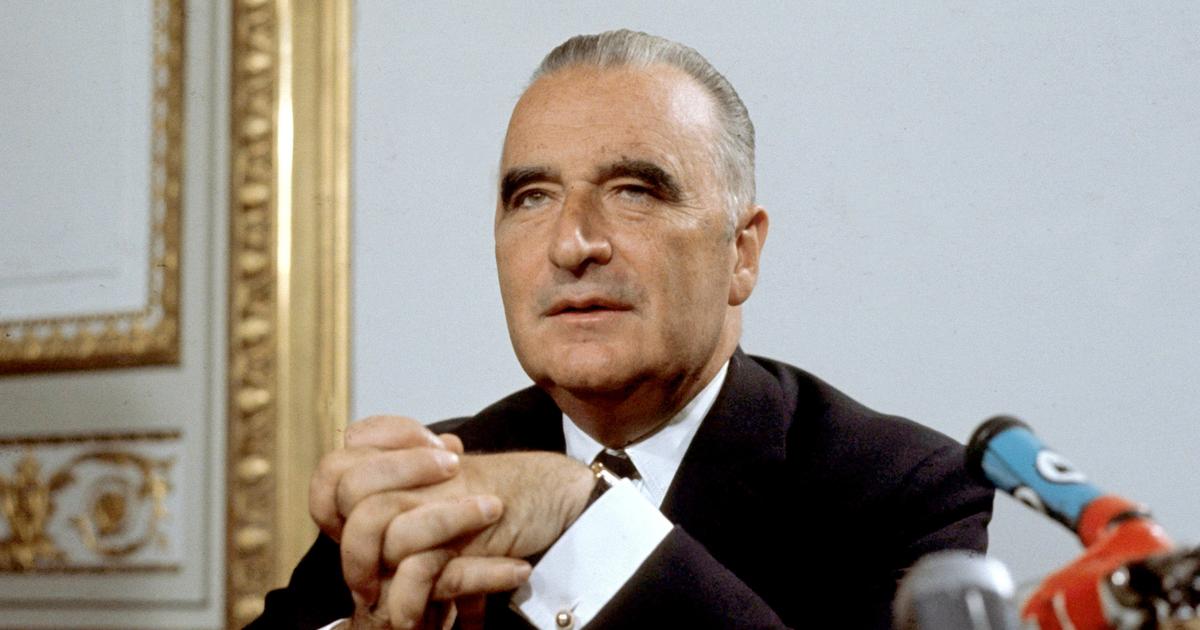Each in their own way, the presidents of the Fifth Republic have tried to imprint their mark on history by lending themselves to the exercise of televised wishes.
Le
Figaro
has selected eight emblematic greeting speeches for the eight French heads of state.
De Gaulle: bury May 1968
The year 1968 was trying for General de Gaulle.
The crisis of May 1968 almost brought it down.
Aged but energetic, it evokes "
the morbid attraction of the abyss
" which France was confronted with "
last spring
".
The year had however started well for the Gaullist camp.
On January 8, at the edge of the Nanterre swimming pool, the Minister of Youth François Missoffe had blown his nose on a certain Daniel Cohn-Bendit, who criticized him for not being concerned with "
sexual problems of young people
".
"
With your head, I have no doubt that you will encounter problems of this order
," retorted the minister.
I can't suggest enough that you dive into the pool
”.
But, in May, at the "
chill
student adds the workers' strike, sinking the country into violence and economic stagnation.
The opposition took advantage of this to attack de Gaulle.
Mendès-France officially acknowledges its support for the students by going to the Charléty stadium while on May 28, Mitterrand evokes the imminent overthrow of power and presents socialism as the alternative demanded by the youth against the old General.
Read alsoA political X-ray of the de Gaulle presidency (1959-1969)
On the 29th, de Gaulle gambled with the coup de theater of Baden-Baden.
Leaving at 11:20 a.m. for Colombey, the president's helicopter never arrived: Charles de Gaulle has disappeared!
He does not arrive until 6 p.m. after a trip to Germany, where he reviewed Massu's troops at the French forces' headquarters.
The media effervescence of the revolt has been swept away and the whole country has its eyes fixed on him again: he has regained the advantage.
After dissolving the Assembly, he won an overwhelming majority in June, in an election that looked like a referendum.
“
The French nation has pulled itself together
,” underlines the Head of State in his speech on December 31.
"
Through the elections, it has demonstrated in a dazzling manner its desire to ensure order, maintain institutions and pursue the march towards progress
”.
With his inimitable verb, the president concludes in a tone of almost spiritual purification: "
Let us therefore lay in the ground the devils who have tormented us during the year which is ending
"
.
Pompidou: "In the frozen winter of the Liberation..."
When he pronounced his first vows in December 1969, Georges Pompidou had only been president for six months.
In his style of academic brilliance, he stages the continuity he embodies with de Gaulle by reiterating for France the wish
for "renewal
" formulated a year earlier by his illustrious predecessor, so that "
after the hardships suffered, the perils once again overcome, our country can calmly resume its efforts
".
Loyal Prime Minister of the General, Pompidou was replaced by Couve de Murville following the legislative elections of July 1968. Remained on good terms with the President, he nevertheless regained control of the UDR in March 1969, without hiding his presidential ambitions.
On April 10, de Gaulle announced that he would once again put his resignation in the balance regarding the referendum of April 27, which was to enact the abolition of the Senate and the decentralization of institutions.
Read alsoThe Pompidou years: was it the good time?
General de Gaulle's lapidary press release, on the evening of the victory of the “no”, remained in the annals:
“I cease to exercise my functions.
This decision takes effect this evening, at midnight
.
In the process, Pompidou declared his candidacy.
Once elected, in his vows of December 31, 1969, he reminded the French people of General de Gaulle and the Liberation, to draw the energy necessary to build a prosperous future.
"
Exactly 25 years ago, I remember, in the freezing winter of the Liberation, I accompanied General de Gaulle who was visiting the towns of the Paris suburbs in the snow.
Everywhere, our people, badly nourished, badly heated, badly dressed, were bent on working to rebuild France.
Let our youth think about it and let their teachers teach them.
Nothing is gained except by effort;
nothing is worth winning except in fraternity
”.
Giscard: “dynastic” wishes
Of the wishes pronounced by Valéry Giscard d'Estaing, History cruelly retains those of December 31, 1975. Elected the previous year at only 48 years old, Valéry Giscard d'Estaing wants to break with the Gaullist gesture.
For the solemn speeches of his predecessors, he substitutes a staging by the fireside with his wife Anne Aymone.
The commentators make fun of the visible discomfort of Madame Giscard d'Estaing and taunt a "
dynastic
" style.
Read alsoJohn Travolta, Emmanuelle, Björn Borg… Our tender Giscard years
This break with the Gaullist incarnation of the function was immediate, Giscard having refused to dissolve the Assembly once elected.
The moderate Orléanist temperament of the new head of state did not fit well with this practice, which he considered to be authoritarian.
But between Giscard and the Gaullist majority, which he had chosen to keep, the disagreement then continued to grow during 1975. The first act occurred with the decriminalization of abortion, voted on January 17, 1975 thanks to the support from the left and despite the opposition of the majority of the Gaullist deputies.
These disagreements continued thereafter on
social issues against a backdrop of economic slowdown, at the twilight of the postwar boom.
But the break with de Gaulle is above all symbolic.
Understanding before anyone else the growing importance of the media, Giscard inaugurated the era of this policy where the image counts as much, if not more, than actions.
“
His problem is the people
said de Gaulle of the man who was then his young and brilliant Minister of Finance.
Photographed in a sweater, in a bathing suit, with an accordion and even with his daughter Jacinthe for his presidential campaign poster, Giscard spends a lot of energy showing his closeness to the people.
During 1975, he went to dinner once a month in a French home, accompanied by journalists and photographers.
He thus invites himself successively to the home of a truck driver, a sales executive from Tours, a Parisian railway worker, or a couple of Breton peasants.
The staging of the greetings of December 31, 1975 is in line with this communication strategy.
Mitterrand: "I believe in the forces of the spirit"
On December 31, 1994, François Mitterrand was old and ill.
The scandals that accompany the fall of power have broken out.
Over the past year, the French have learned that the president has a hidden mistress and daughter, as well as his early Vichy ties.
But the old monarch does not miss his exit.
He dares to evoke the eternal survival of his link with "
the French people who have entrusted their destiny to [him] for so long
", pronouncing his enigmatic formula
"
I believe in the forces of the spirit,
and I will not leave you".
Despite the cohabitation he must suffer with Balladur because of the outrageous domination of the right in Parliament, Mitterrand has had several successes over the past year.
Scandals did not spare the right-wing government, which saw Carignon, Longuet and Roussin resign successively.
In early January, the president gave the coup de grace to the government's plan to abolish the Falloux law, deemed unfavorable to private education.
In the spring, the old sphinx also emerged strengthened from the failure of Balladur, forced to back down on the creation of the professional integration contract.
During his speech, however, he does not fail to mention, to better associate himself with it, "
the brilliant coup of the GIGN
who, a few days earlier in Marseille, had managed to save the Airbus Paris-Algiers from the terrorists.
Read also40 years ago: birth of the “Mitterrand generation”
But in 1994, the right had a presentiment that victory had been won for him for the presidential election, and Balladur had already undertaken to rally behind him all the barons of his camp, with the exception of Alain Juppé, who remained faithful to Jacques Chirac.
The president then delivers a double recommendation with the accents of a political testament:
"Never dissociate freedom and equality, which are the basis of all democracy
" and "
never separate the greatness of France from the construction of Europe. .
This is our new dimension and our ambition for the next century
”.
Chirac: standing in the storm
“
In 1997, a new majority was elected
,” began Jacques Chirac on December 31, 1997. For the first time in the history of the Fifth Republic, the president spoke standing up, as if to better display his resolution.
By dissolving the Assembly against all odds, Jacques Chirac offered power to the left for five years and condemned himself to govern for only two years.
Much has been written about the reasons for the failed April 21, 1997 dissolution.
The executive couple Juppé-Chirac then broke unpopularity records.
Chirac had refused to dissolve the Assembly after his victory in 1995. Was he deceived by the polls which all announced him as the winner?
Still, he believes that an election in 1997 was preferable.
Missed bet, the left wins the absolute majority and Chirac is forced to appoint Jospin Prime Minister.
Read alsoJacques Chirac or the nostalgia of the 80s
“
The government is applying its policy and I will tell you how things look
,” he continues in his vows.
The Head of State only has to detail the role that will now be his.
He recalls being the "
guarantor of the continuity of the State
" and the "
guardian of the values of the Republic
".
"
Responsible for the future of the nation, I will intervene whenever its interests are at stake
," he said.
For the first and only time in the Fifth Republic, the cohabitation will last five years.
Sarkozy: the president takes a direct risk
Anxious above all to keep control of his agenda, Nicolas Sarkozy does not appreciate being constrained by mandatory appointments.
On December 31, 2007, the newly elected president, however, complied with the exercise and built his speech around the two themes that structured the start of his five-year term: openness and Europe.
For the first time, the speech is even delivered live, while his predecessors recorded their speech.
"
I have put all my heart and all my energy into being the president of all French people
", affirms Sarkozy, who evokes
the "spirit of openness
" which prompted him to appoint an enlarged government beyond his only political camp, with personalities from the left such as Bernard Kouchner (Foreign Affairs), Martin Hirsch (Active solidarity against poverty), Éric Besson (Evaluation of public policies), or Jean-Pierre Jouyet (European Affairs).
This desire to overcome divisions, Nicolas Sarkozy displayed it throughout his political campaign, during which he notably appropriated the references of the left, quoting for example Jaurès 28 times during a single speech.
Read alsoThe president's wishes to the French: the level drops!
Among the “
emergencies
” that he lists, the Head of State evokes the “
urgency of the simplified treaty to unblock Europe.
The Europe which I have never ceased to think was indispensable to us
”.
Here again, his wishes are in line with his communication since the start of the five-year term.
As soon as he took office, Sarkozy dined with Tony Blair and Angela Merkel then visited the President of the European Commission.
For the first time, the European flag appears on the official presidential photo.
Holland: first presidential announcement
A highlight of his speech on December 31, 2013, François Hollande announced the “
responsibility pact for companies
”.
It is the first time that a president has announced political reform during his vows.
It must be said that for the Head of State, the year 2013 ended in difficult conditions.
His popularity rating is around 22% and will fall further after the revelations about his relationship with Julie Gayet in January 2014. The government is above all confronted with the disunity of the majority, which was particularly evident during the discussions around the text relating to the transparency of public life, the President of the Assembly, Claude Bartolone, himself, having denounced "
paparazzi democracy
".
In the fall, the Léonarda affair considerably lowers the presidential speech.
The announcement of the responsibility pact appears to be an attempt to trigger a new impetus on the economic side.
"
Fewer workloads, fewer constraints on their activities and, at the same time, a counterpart: more hiring and more social dialogue,
” explains Hollande.
Read also Hollande's balance sheet by Holland full of inaccuracies
The president does not fail to recall on several occasions his action in the face of "
serious international crises
", about which he considers to have shown firmness.
He evokes the commitment of the French forces in Mali “
to fight against terrorism
”.
He also talks about Syria, which he had threatened to sanction in the summer of 2013, about the use of chemical weapons by Bashar al-Assad.
Finally, he cites the Central African Republic, where he engaged French forces in December, against the soldiers of the Seleka rebellion, “
to save human lives and prevent children from being cut into pieces
”.
François Hollande does not omit to talk about same-sex marriage, which he had adopted in May 2013, in accordance with his campaign promise.
Macron: the vaccine and the recovery plan as remedies for containment
The lack of historical perspective makes it more difficult to analyze the past political year, on the evening of Emmanuel Macron's speech on December 31, 2020. But the sequence is remembered as that of a confined New Year's Eve, not "
like the others
”, to use the terms used by the Head of State at the start of his speech.
Hit by the Covid-19 epidemic, France is in its second confinement.
Several hiccups or communication errors have made the government lose feathers.
New Year's Eve comes to close a gloomy year made up of empty stadiums, canceled elections, closed places of life, economic apathy and the resurgence of terrorism, with the assassination of Samuel Paty in the fall.
Emmanuel Macron puts the focus on the health crisis.
"
I am fully aware, through the decisions I had to make, of the sacrifices I asked of you
", concedes the Head of State, who wants to be reassuring, affirming that "
hope is there, in this vaccine that human genius brought about in just one year
”.
Emmanuel Macron wants to highlight the positive aspects of the year 2020. "
Marie-Caroline
", 24-year-old nurse, "
Jean-Luc
", "
dust collector driver in Guyana
", "
Gérald
", "
entrepreneur near Angers
" , “
Rosalie, bookseller in Bagnolet, in Seine-Saint-Denis
”, “
Mehdi, SES teacher in the northern districts of Marseille
”, “
Mauricette, 78, retired in Sevran, first French woman to be vaccinated against Covid-19
»... For long minutes and in a rather unexpected style, the Head of State lists the names of several French people who, in his eyes, are the «
heroes of the nation
».
He then mentions "
the unique and massive recovery plan
” decided in consultation with European partners “
to better prepare our future
”.

